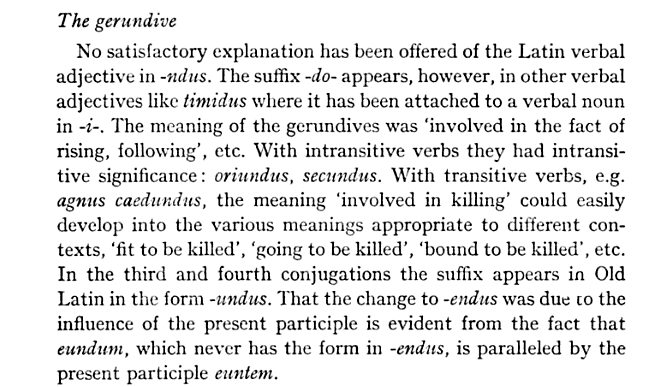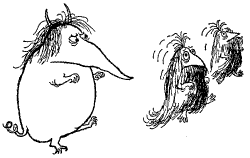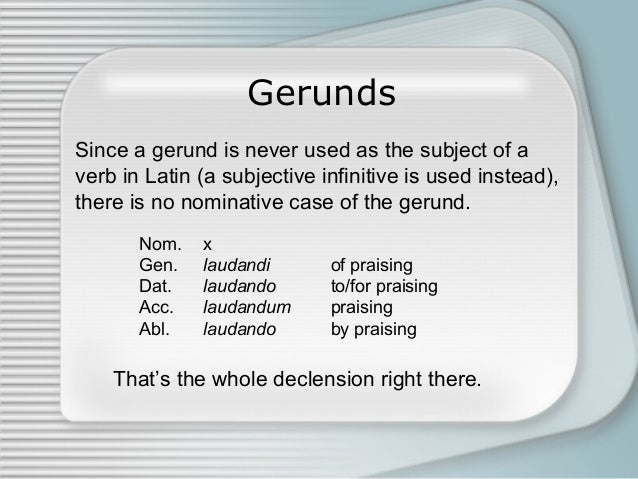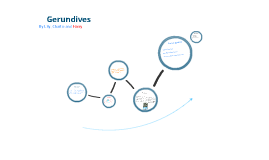How can the answer be improved?
The gerundive when used as a participle or an adjective is always passive, denoting necessity, obligation, or propriety. In this use of the gerundive the following points are to be observed: The gerundive is sometimes used, like the present and perfect participles, in simple agreement with a noun.
Start studying Latin Gerunds/Gerundives Practice. Learn vocabulary, terms, and more with flashcards, games, and other study tools.
In Latin grammar, a gerundive (/ dʒ ə ˈ r ʌ n d ɪ v /) is a verb form that functions as a verbal adjective. In Classical Latin , the gerundive is distinct in form and function from the …


But where a direct object is used, the gerundive is preferred. D. Gerund with causa to express purpose: The genitive of the gerund followed by causa will express purpose: Legendi causa venit. He comes for the sake of reading (to read). But where a direct object is used, the gerundive is preferred.
For many instances in Latin, one may use the gerund or gerundive interchangeably, but the Romans invariably preferred the gerundive adjective construction whenever there was a noun involved. Compare these examples, where gerunds are in this type and gerundives are in this type .





Oct 28, 2018 · gerundive (plural gerundives) ( in Latin grammar ) a verbal adjective that describes obligation or necessity, equivalent in form to the future passive participle. ( less commonly , in English grammar ) a verbal adjective ending in -ing [1] , also called a "present participle".
Gerunds vs. Gerundives Posted by Brittany Britanniae on Feb 20, 2014 in Latin Language Have you long struggled with knowing the exact forms and uses of the Latin Gerund or Gerundive? Well, this post was created in order to aid you in all your questions about forms, translations, and grammatical uses.
Apr 06, 2015 · The future passive participle, also known as the gerundive, is used in the passive periphrastic in order to express obligation or necessity, and also in gerundive phrases.
The Gerundive is very likely to be in the NOMINATIVE case (unless it’s actually also part of an Indirect Statement…..sorry!) 3. Very often, there will be a noun in the DATIVE: this is the case used for the person who must or needs to do the verb.

